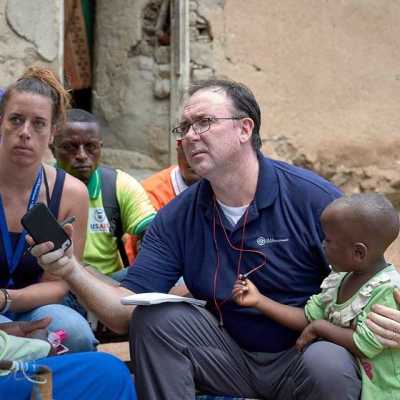The explosion on August 4, 2020, in Beirut killed more than 200 people and changed thousands of lives forever. In partnership with our caring donors, the US Agency for International Development and our committed staff and partners on the ground, here are some ways we've helped families to find their way to a new normal, even as questions about the blast remain.
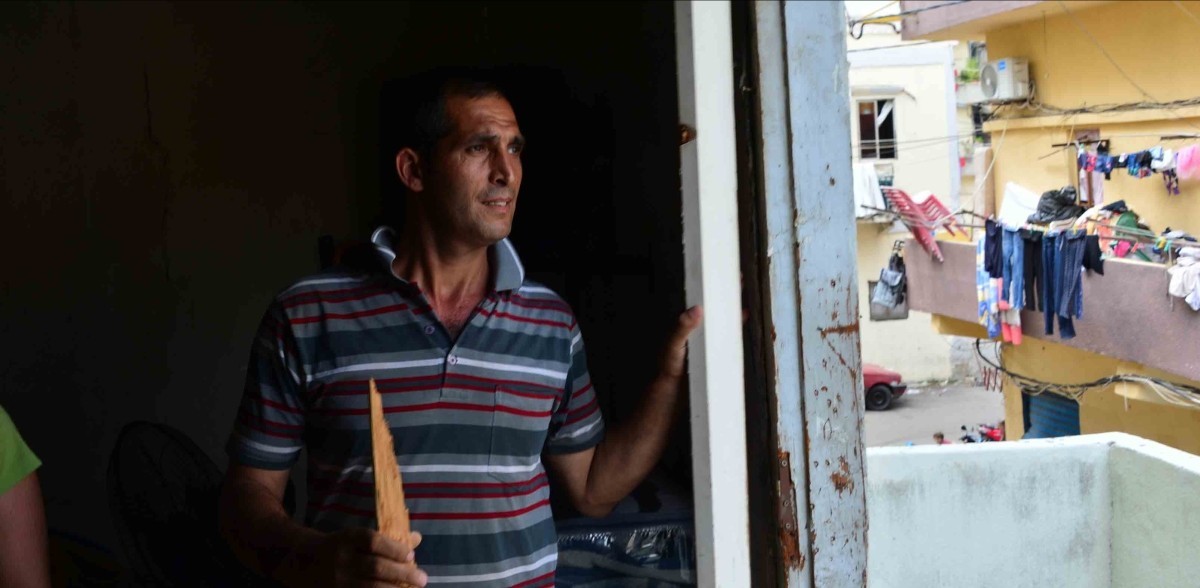
Photo by Matt Hackworth
Khayrallah Warde, 40, was on his way home from looking for work in Tripoli when he heard about the blast. His three children were at home in the family's two-room flat, and told him the doors blew in off their hinges. Unemployed, he says he cannot afford to fix the doors to his family's home.
Photo by Matt Hackworth
The Aug. 4 explosion closed Beirut's port, prompting concerns about food imports and the ability for Lebanese people to have a sustainable source of food. Your love quickly set up food distributions, like this one near Mohammad Al-Amin Mosque, with a special emphasis on serving those who were shut in by COVID and other concerns.
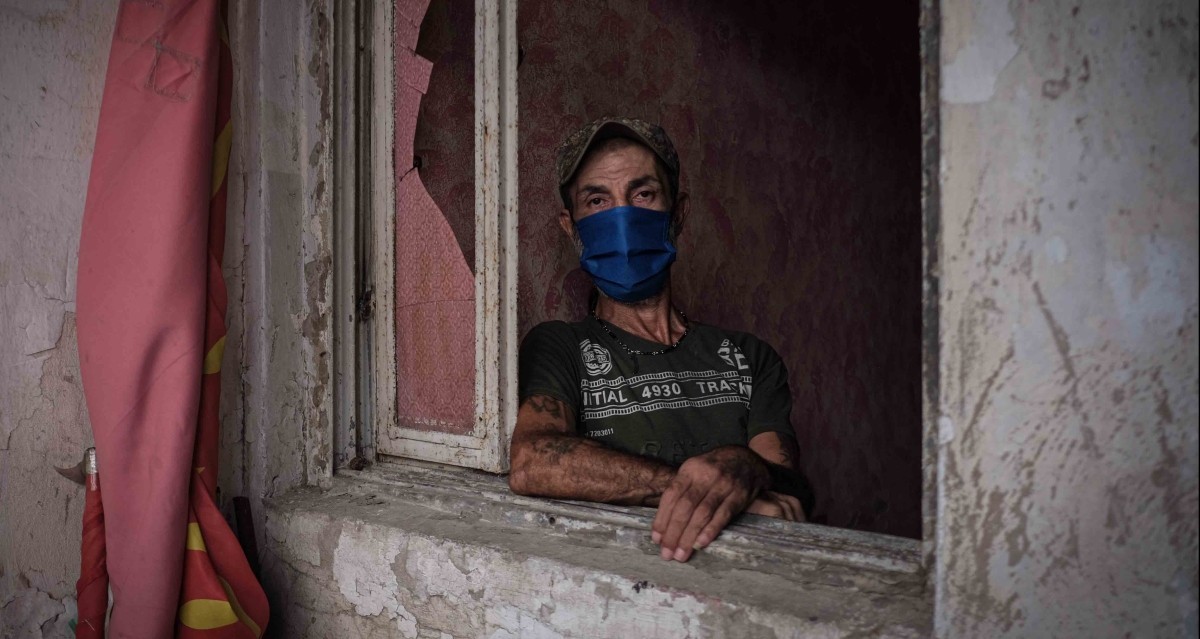
Photo by Joao Souza
Haitham Ahmad Fahs was preparing to fish for dinner when he heard the boom of the explosion. He returned to his home to find the windows blown out, doors blown out of the walls and significant electrical damage. "It's worse than the war," he said. "In the war, at least we were safe in our homes." With US government support, we have been able to help families to return home by providing repairs to doors, windows and other blast damage. "I'm grateful," Fahs said. "This will help me mentally recover."

Photo by Joao Souza
In all, we were able to help nearly 2,000 families to repair their homes and return. Camille Cababe was forced to stay with friends for three months until Lutheran World Relief helped her to make repairs. "Without you, I have no idea how we would have done it," she said. "Being back home helps me to deal with life better and the chaos around me."

Photo by Joao Souza
Mainstay family appliances were also damaged in the blast, and it couldn't have come at a worse time. With banks shuttered and Lebanon's currency plummeting, many families were forced to consider the prospect of returning to homes with broken refrigerators, stoves and ovens. Rajaa Shehab's stove only had one working burner, until our appliance replacement project was able to help the family to replace it. In all, more than 200 families received replacement appliances that allowed them to return home.
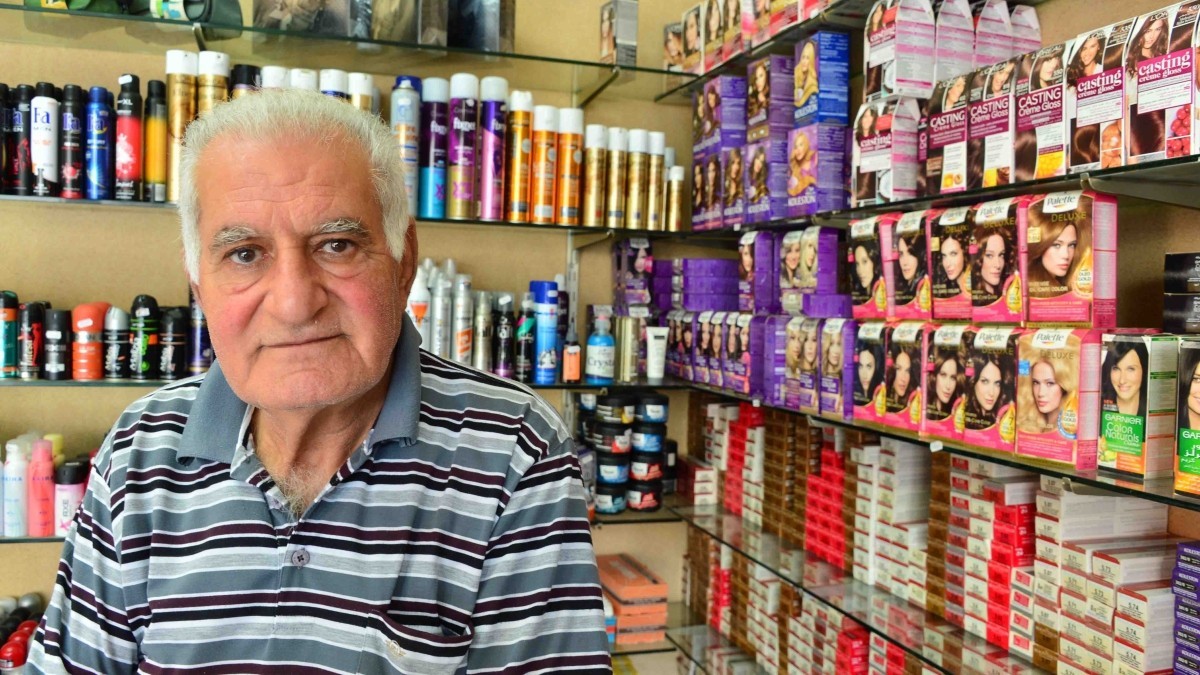
Photo by Matt Hackworth
While more than 300,000 Beirut residents were forced from home by the blast, the explosion shuttered businesses, too. Lutheran World Relief joined the Georges N. Frem Foundation (GNFF) to help small and micro-enterprise businesses to make repairs that otherwise would keep their doors locked – if any doors remained at all. We helped nearly 100 small family businesses to secure replacement equipment and repairs necessary to reopen, such as replacing the front windows on Joseph Daou's cosmetics store. "There's no way I could have afforded to re-open," Daou said.

Photo by Joao Souza
Two trailers full of quilts and kits were originally reported as being destroyed in the blast, while waiting for customs clearance. However, in the days following the blast our shipping partners were able to determine the trailers had survived, parked behind a sturdy concrete building. Though the containers were twisted, the cargo was still intact, and the items were recovered and distributed to Palestinian and Syrian refugees, who were grateful for the outpouring of love from dedicated quilters and kit makers
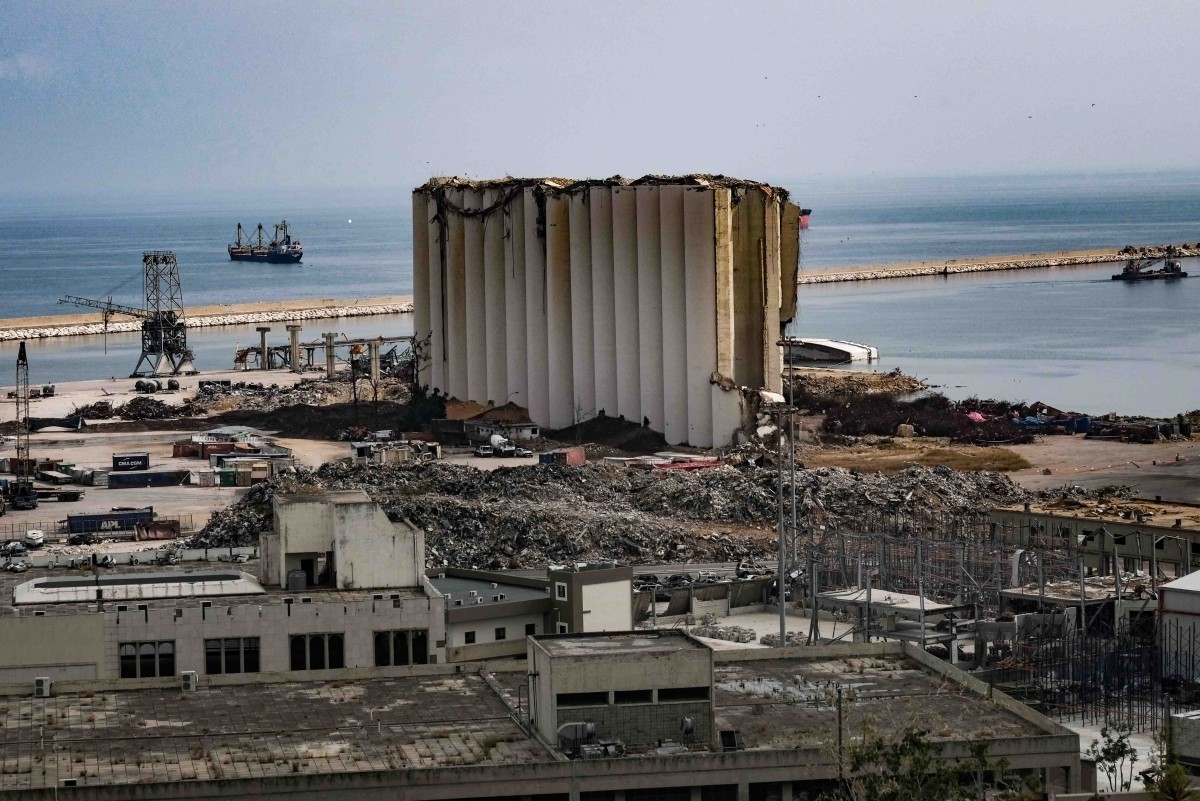
Photo by Joao Souza
Beirut's port grain silos quickly became an icon for the disaster, representing the country's challenges in governing, economics and insecurity. Yet we continue to see bright spots in Beirut and in Lebanon, a critical component of a more stable and prosperous Middle East region. Our commitment to Lebanon's people remains, addressing challenges by working with like-minded individuals and organizations who are hopeful for brighter days ahead.



